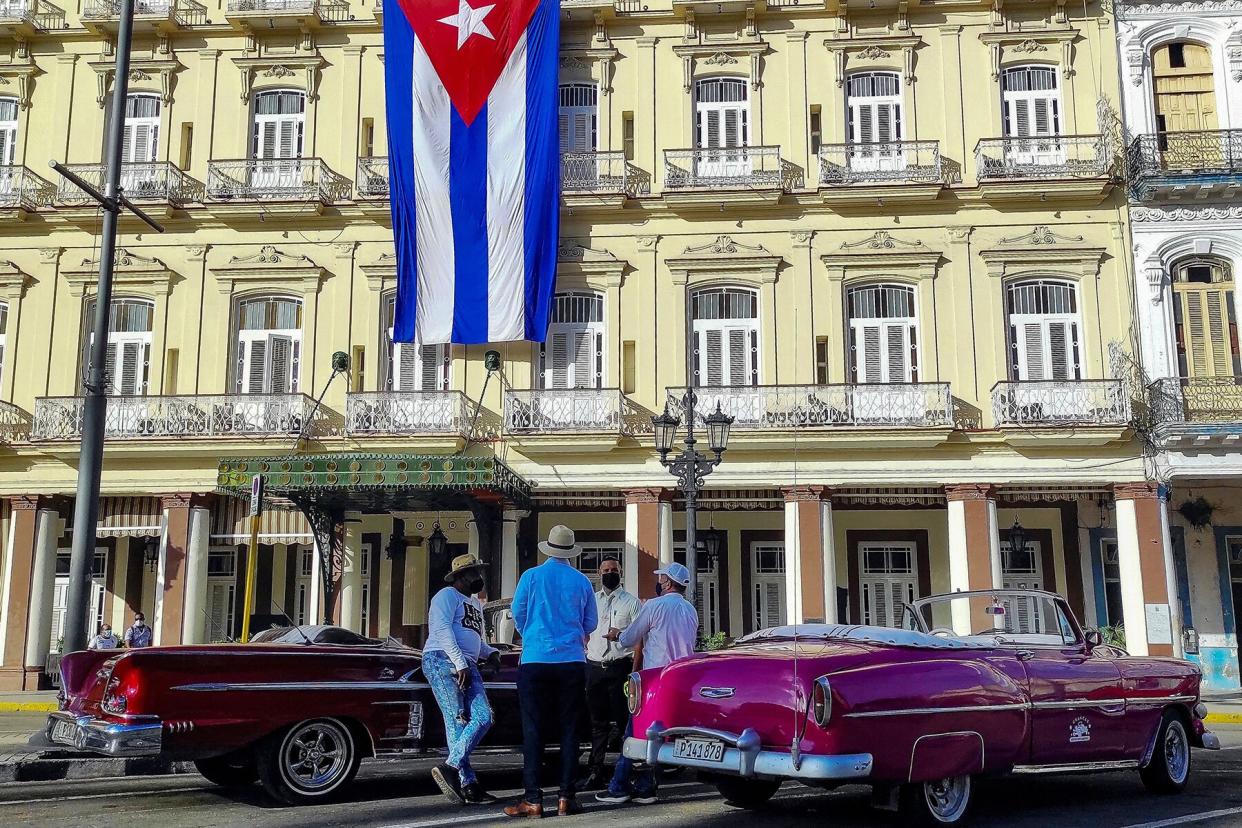CDC Says to 'Avoid' 7 More Destinations, Bringing Advisory List to Over 130

Yamil Lage/Getty Images
More than 130 destinations are now classified under the Centers for Disease Control and Prevention's highest travel warning as the agency advises Americans to "avoid" traveling to those areas.
The updated list reclassified seven more destinations under its "Level 4" warning: Armenia, Cuba, Israel, Japan, Libya, Oman, and the Democratic Republic of the Congo.
The CDC recommends that anyone who does travel to a "Level 4" destination is "vaccinated and up to date with your COVID-19 vaccines before travel," but warns, "Even if you are up to date with your COVID-19 vaccines, you may still be at risk for getting and spreading COVID-19."
A destination is classified as "Level 4" if there are more than 500 COVID-19 cases reported per 100,000 people over the last 28 days, indicating a "very high" level of COVID-19 transmission in the community. The CDC has increasingly added more and more destinations to its highest warning level in recent weeks, which it updates on a weekly basis, including popular tourist destinations like Mexico, Canada, St. Barths, Aruba, Spain, Italy, and France.
The CDC also continues to warn against traveling on a cruise ship, classifying the activity under "Level 4" as well. While the agency warns against embarking on a cruise and said COVID-19 can spread "easily between people in close quarters on board ships," it did make its guidance optional for cruise lines last month, allowing its Conditional Sail Order to expire.
While the CDC warns against traveling to "Level 4" destinations and recommends Americans be vaccinated if they do, many locations on the list continue to welcome American tourists.
Israel, for example, welcomes American travelers who have been vaccinated within the past 180 days or received a booster shot. Travelers are also required to show proof of a negative COVID-19 PCR test taken within 72 hours or a negative rapid antigen test taken within 24 hours before their flight, and get tested with another PCR test upon arrival.
And other countries classified as "Level 4" have recently started to ease border restrictions, like the Philippines, which plans to reopen to international travelers this week. Vaccinated travelers will be required to show proof of a negative COVID-19 PCR test taken within 48 hours of their departure as well as self-monitor for symptoms for seven days after arrival.
All travelers from the United States who travel internationally are required to get tested for COVID-19 within one day of their flight back to the country.
Alison Fox is a contributing writer for Travel + Leisure. When she's not in New York City, she likes to spend her time at the beach or exploring new destinations and hopes to visit every country in the world. Follow her adventures on Instagram.

